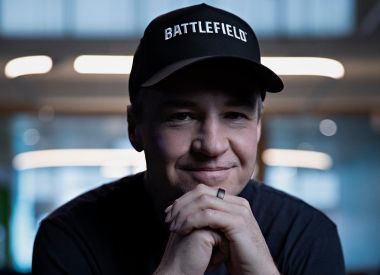Virtual Reality promises users the world of tomorrow, but that’s its biggest problem. Tomorrow isn’t here yet. Today’s technology is still new to the developers who have to figure out how it all works before they can make something worthwhile.
Paul Bettner is one of those people.
He’s the CEO of Playful, which recently released Lucky’s Tale. Lucky is a virtual fox players guide through a 3D world. It was a free game that came bundled with every Oculus Rift sold, making it one of the most widespread VR games released to date. Despite the early success, Bettner still feels like he’s an adventurer in the world of VR, like everyone else.
“It’s been a frontier,” Bettner told iDigitalTimes. “Now that we’ve been on the frontier for a little bit, it’s got to be like what a filmmaker was like at the dawn of film.”
Bettner compares working in VR now to working on a motion picture in the late 1800s and early 1900s. “What I’ve come to understand is that it felt at that time like a new language was being invented,” he said. “Just the fundamentals of how you tell a story and direct someone’s attention and create a compelling emotional experience, they had no idea.”
An infamous story (that may or may not have actually happened) of that era tells of people fleeing from a screening of L'arrivée d'un train en gare de La Ciotat, a 50-second-long clip from 1896 that shows a train pulling into a station. If that seems laughable now, watch some reactions of people using VR for the first time. How hard will we laugh when we look back at these videos in a few decades? Bettner thinks it could be at least that long until we know what we’re doing.
“They tried crazy things that if we look back on it now, like make a movie of one contiguous shot because they hadn’t invented how to make scenes yet, it seems crazy given the contemporary understanding of movies now,” said Bettner. “That’s where we’re at with VR now. I don’t think we’ve even invented what our “cut” is yet, honestly. With that realization, it’s a multi-year, maybe even decades-long, endeavor on this frontier to figure it out.”
Bettner’s latest project, Creativerse, isn’t guaranteed to release on VR (an Early Access version is currently available on PC.). Creativerse is a game similar to Minecraft, with players able to create their own worlds and adventures to go on. Players can then take those creations and share them with the world. Making a game work in VR isn’t like turning a movie into a 3D release. There’s not a simple conversion that makes everything work easily.
“We need to take the principles that inspired Creativerse for PC and apply those principles, but allow the VR part to become its own thing,“ said Bettner. He thinks it would be a disservice to everyone if Playful took what already exists and jammed it into a VR headset. Careful considerations need to be made so his new game doesn’t come off as a cheap cash-grab. If Creativerse and virtual reality don’t mesh together, the experiments will have to move to Playful’s future projects.
As for the future of virtual reality, we’re only just at the beginning of what could be the next major entertainment format. Bettner and Playful aren’t alone. Nearly every major video game publisher, movie studio and social media network have an interest in adapting the technology to serve a variety of purposes. Only time will tell if VR can find its “language” like other media have, but today a small virtual fox named Lucky leads the charge.


















